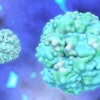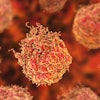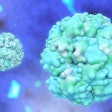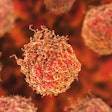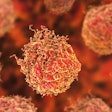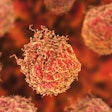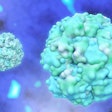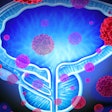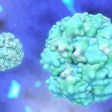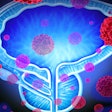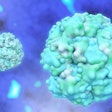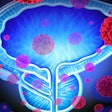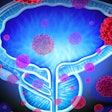
A higher level of insulin-like growth factor 1 (IGF-1) in healthy men was associated with subsequent diagnosis and death from prostate cancer in a new prospective study of more than 200,000 UK Biobank participants.
UK Biobank is a nonprofit research project that is collecting fluid samples and patient histories from people in the U.K. between the ages of 40 and 69 to study long-term outcomes.
Data from the study comparing hormone levels in men at baseline with outcomes later on are slated for release in a poster presentation on November 3 at the National Cancer Research Institute (NCRI) Cancer Conference in Glasgow, U.K. The participants in the research, which was funded by Cancer Research UK, did not have signs of cancer at baseline and were not taking hormone therapy. In addition to measuring IGF-1 and free testosterone, the researchers evaluated total testosterone and sex hormone binding globulin (SHBG). The men were followed for a median of 6.9 years.
Approximately 5,400 men were diagnosed with prostate cancer and 300 died from it. The researchers found that a higher level of two hormones -- IGF-1, which stimulates cell growth, and free testosterone -- were associated with a higher rate of diagnosis of prostate cancer. Furthermore, IGF-1 was associated with a higher mortality rate, whereas free testosterone was not.
Co-author Dr. Ruth Travis, an associate professor at the University of Oxford's Nuffield Department of Population Health, and colleagues believe there is a link between the levels of IGF-1 and free testosterone. Further research could lead to disease prevention strategies in the future, they added.
